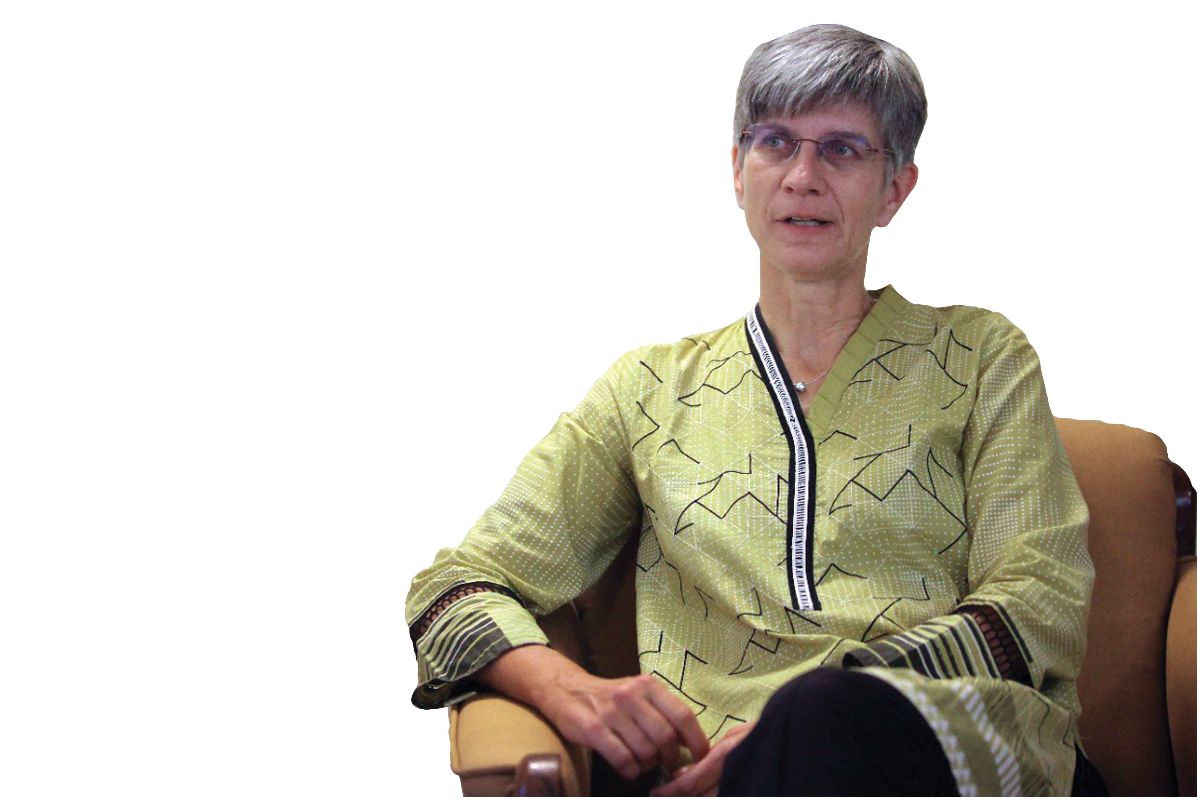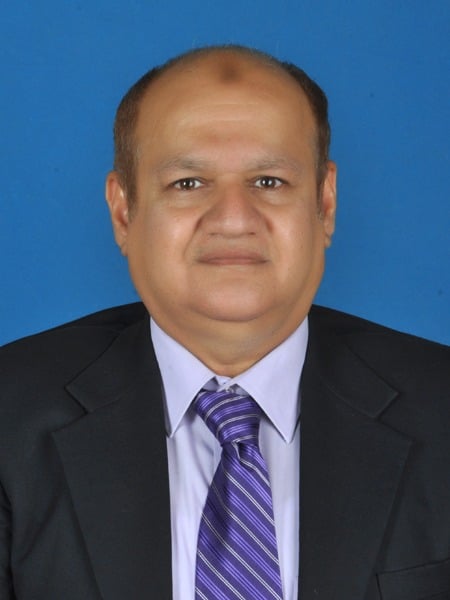
Exploring New Avenues for Success
ISLAMABAD: Pakistan has a lot of potential but it could do much better, compared with what it is doing, at present, said Birgit Lamm, head of FNF Pakistan office.
First of all we are working on the economic development and entrepreneurship. This is a country with vastly young population of an average age of 22, who have hopes and want a better future, she added.
For her, it is the duty of every country, its politicians, administration and leaders of the society to give opportunities to these young people to prosper in Pakistan for the betterment of their families, she said.
In this respect, there are a lot of opportunities in the education sector. Education is the first step to overcome poverty.
We as an organisation also work a lot to encourage the people think that entrepreneurship might be a good opportunity for them. Unfortunately in Pakistan, even the educated people like university graduates find difficulties in getting formal employment. But if someone do not find a job, then he or she can start their own business and by doing this they can create jobs for others, as well, Lamm said.
There is a lot of creativity in this country but the people need to refine their ideas and get going but for this they need business-friendly environment, so we need to talk to the administration and politicians to give a framework so that the people can start their own business and make living out of it.
Following are the excerpts from an exclusive chat of BOL News with the FNF head of Pakistan Office, who discusses prospects and challenges for Pakistan’s economy:
What is mandate of your organisation and in which areas it works?
Friedrich Nauman Foundation is a German political organisation, which was founded in Germany in 1958 and we are actively working in Pakistan since 1986. Just like Germany and 60 other countries, we have a same mission. We are working for open society, where the people realise their project of lives and take responsibilities. We work with the politicians, civil administration and citizens to empower them and take responsibility for their decisions.
This system of organisation was introduced in Germany after the terrible experience of the World War II, the horrifying genocide Nazi Germany brought about in Europe and in Germany, as well. The founding fathers of the Federal Republic of Germany President, who is also the first president of our organisation Theodor Heuss was the staunch democrat and lived all through the Nazis era and that is why he wanted to ensure that such a terrible dictatorship will never happen again.
So, the idea was to create an institution for German citizens to give them awareness about what the democratic values are and how actually they live these values in day-to-day life. At the same time, providing the citizens a platform for aid of the current political affairs because this is what democracy and freedom means in every situation.
This is what we are doing till now. Our core business is in Germany but we are also actively working in 60 other countries, including Pakistan.
How long you are working in Pakistan and what sort of experience you have in dealing with the Pakistani society?
I have been in Pakistan since July 2019 just before Covid-19. Before this, I came here only as a visitor for business trips in 2008 and 2010. When I came here in 2019, I already witnessed the change by arriving at the New Islamabad Airport and the city was modernised. I was always welcomed here and highly impressed by the hospitality of the people. It is a big country with amazing diversity and colourful and enterprising people who are trying to make ends meet and believe in respectful lives with their families.
Do you think that the government should work as a facilitator rather than a stakeholder?
The government has always been a stakeholder but it should be benevolent in nature because no government in the world generates money of its own and always work with the money, which it earns from its citizens in the shape of taxes.
It should be in the interest of every government that its citizens are productive as much as possible, so they generate a lot of income and wealth for the betterment of the society and this way the government and administration prosper, as well.
In the current situation, the government of Pakistan also desperately trying to generate more tax revenue to overcome economic problems in the country.
In your opinion how Pakistan can overcome the prevailing economic challenges?
I think Pakistan should be more courageous in reaching out to the international market to explore new buyers for its products. Pakistan seems to be torn between two major actors China and the US. But there is a lot of stuff between it, as well. The European Union and Pakistan are negotiating GSP Plus for market access but in the Asian states, especially in Central Asia, there exists regional trade potential, which is yet to be exploited. This is one area where the policymakers should be more courageous and actually open up and use these opportunities.
I mean there are ample opportunities in developing an environment where we know import substitution has not worked. It has not worked in the US and Latin American States in 1950s and 1960s and not even in the Asian countries.
The recent economic success in Bangladesh only happened when it opened its economy by providing flexibility to its export and import regimes. This policy shift made them more competitive and kick-start their economy. But if we see the trade structure and kind of products Pakistan is producing for the last 20 years, there is hardly any change.
There is hardly any innovation and creativity in the products exported by Pakistan because the innovation never incentivise. To remain competitive in the international market, the country needs to keep innovating. Pakistan by any means is a big market of over 220 million people and could even generate economic development from its own market. In such a big market, every large-scale manufacturer and seller will be interested if the environment and policies are conducive for investment.
In which areas or sectors your organisation is working and focusing on?
We work on entrepreneurship training, especially for the vulnerable groups of the society, which is underprivileged women, disabled persons, minorities and economically disadvantaged people.
We try to familiarise them with the idea that entrepreneurship could be an option for them to earn respectable living and our partners are guiding them. That mean training and how to refine their business idea but also introduce them to other stakeholders because there are good government programmes such as Ehasas or now Benazir Income Support Programme. There are also good government agencies such as the Small and Medium Enterprises Development Authority (Smeda), which has good officials and structure to create outreach in the backward and rural areas.
These structures exist, but unfortunately, the people do not know about them and how to approach them or it is too difficult for them because of the involvement of cumbersome formalities. The vulnerable people who deserve to benefit from the BISP or other government schemes do not know how to fill a form or lacked the Computerised National Identity Card (CNIC) or not even have digital wallet account to benefit from these programmes. This is a missing link between the administration and these people, which the government should address by realising the situation on the ground.
Through our small programmes, we like to encourage vulnerable women to think about developing a business idea and also serve them with a platform to bring them together with the administrators and politicians so they know what their needs are and sit with them to address their basic needs like CNIC, smart phone and digital wallet account to start or further develop their businesses.
We are also trying to reduce the concern or fear factor among these vulnerable women in interacting with the administrator. We also invite the administrators in these programmes so that they can educate these women how to fulfil the formalities to acquire seed money to start a business.
To be very honest, on a broader level, this is not happening. The government and the society should take the responsibility to educate people about their rights and help them move towards self-reliance.
How much amount your organisation has allocated for Pakistan and who are the main sponsors?
The amount varies a bit but we work with very little money because within organisation our office in Pakistan is quite small. It is a totally German government-sponsored programme, and for this, the money is provided by the German Ministry of Economic Development and Cooperation.
However last year, we concluded a programme funded by the European Union, which focused on the accountability and transparency at the local level with special emphasis on transparency in district budgets.
We strengthen the outreach of organisations and often enhance their skills by conducting trainings. For example, we conduct a training for women entrepreneurs, and apart from this, for project managers or to other relevant staff members of these organisations, as well, by providing them exposure to the international organisations. We are not a big multilateral organisation like the United Nations (UN), so we focus more on specific and targeted intervention to make the local administration and organisations effective and efficient. We rely on skills and create network with our local partner organisations.
Your women entrepreneurship programme is operational in the rural areas or urban areas?
We started this programme in the urban areas but in the second-tier cities, where this kind of training and exposure is not available.
We work to stimulate the creativity of these people so that they can become successful entrepreneurs and earn a respectable living. Our main focus is on training and capacity-building. We do not provide seed money to them but we connect them with the mentors or explore with them means of funding in getting capital.
We introduce them to BISP, Aga Khan Foundation or to the financial institutions or banks, which provide loans to start new businesses. By doing this, we try to be a platform and a catalyst for them.
Do you think that the ongoing or previous programmes of your organisation created any positive impact on the society and precisely do you have any success stories to tell?
Yes, the entrepreneurs trained by us have quite a lot of success stories. For example, one of our entrepreneurship programme, which we did with our partner organisation called Stimulus was a success. We promote and encourage IT or sustainability-based solutions. The information technology-based business ideas generate more returns on investment and because climate change is the biggest challenge of the 21st century, we need sustainable solutions, so we focus on it.
In one of our programmes called “Women in sustainable entrepreneurship” one of the high fliers were two entrepreneurs who won a NASA Award, which is a big achievement. Even in traditional businesses of textiles, the entrepreneurs trained by us developed a market place on the digital platforms to sell their organic textile products in the urban areas and are fetching very good price for their products.
Catch all the Economic Pulse News, Breaking News Event and Latest News Updates on The BOL News
Download The BOL News App to get the Daily News Update & Live News.








 Read the complete story text.
Read the complete story text. Listen to audio of the story.
Listen to audio of the story.